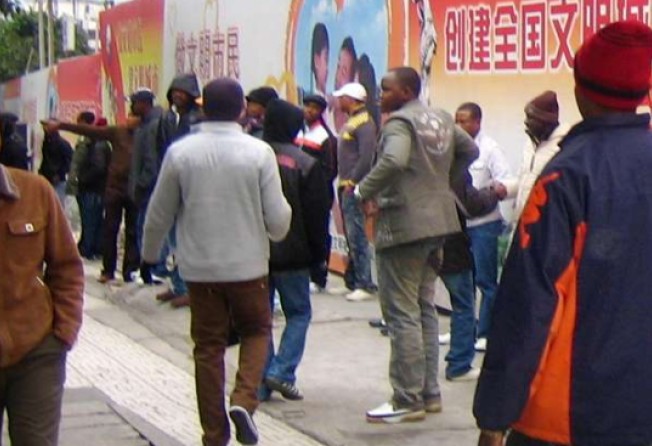Chinese delegate claims ‘illegal’ African migrants pose dangers to city and residents
CPPCC member proposes crackdown on ‘unauthorised’ migrants

As US President Donald Trump’s plan to arrest and deport illegal immigrants ignites fierce debate in his home country, an advisor to the Chinese government claims China should tighten its own policies on African immigrants, who he branded the cause of many safety concerns, news portal Youth.cn reported.
Pan Qinglin, a delegate of Chinese People’s Political Consultative Conference (CPPCC) from Tianjin, said Africans had taken advantage of loopholes in China’s immigration policies and the country’s traditional friendship with African nations to trick Chinese border officials and enter China. He said this was especially so in the economic powerhouse of southern China’s Guangdong province, where tens of thousands of migrants from Africa seek business and lifestyle opportunities.
In 2014, at the height of the global Ebola emergency, Xie Xiaodan, then the deputy major of Guangzhou, confirmed there were 16,000 African residents in the city, rather than the rumoured 500,000, but the authorities have never released figures on illegal immigrants.
Many of the African population in Guangdong are legitimate businesspeople, some no doubt drawn to China through the Forum on China-Africa Cooperation, a campaign Beijing initiated in 2000 to forge relations with African nations.
Pan said in a proposal on Wednesday during the annual CPPCC sessions that the number of Africans in Guandong, most of whom he claimed were unauthorised to be there, had grown rapidly over the past few years and raised a wide range of concerns over social safety and public health and race issues.
Citing figures from unidentified sources, Pan said there were an estimated 700,000 Africans illegally in China, and that number could reach 50 million by 2050, posing significant threats to safety if local governments did not take control measures, the report said.
Some local residents claim there are about 200,000 Africans illegally living in the city.
On social media, some users have also expressed concerns about security risks posed by Africans, but others have said it is inappropriate to label a particular group.
“Please just don’t recklessly give a slandering label to any particular group,” one commenter posted on his social media account. “Exchanges and interactions will be made difficult if we have rigid impression about them.”
Pan, in making his proposal, said the “entrance of foreign culture” could destroy Chinese civilisation and the increase of the African population in Guangzhou would heighten the risk of terrorism in the city.
He suggested that local police authorities in Guangzhou and other cities in the region should strengthen efforts to control African communities while local legislatures should introduce security rules to crack down on any crimes committed by Africans.
Local propaganda authorities should also use mass media and the internet to heighten public vigilance against African people, he said.
Illegal African immigrants should be the subject to deportation, Pan said, their assets in local banks should be frozen and children they have with Chinese citizens should not be given citizenship. They should also be subject to heavy fines.
Africans, mostly traders, began to move to Guangdong in early the 1990s during the Chinese economic booms. Illegal immigration issues came under the media spotlight after 2009 when a Nigerian man jumped from a building to flee a passport check by police. His death triggered a protest outside a police station by members of the African community who blocked a street, China Daily reported at the time.